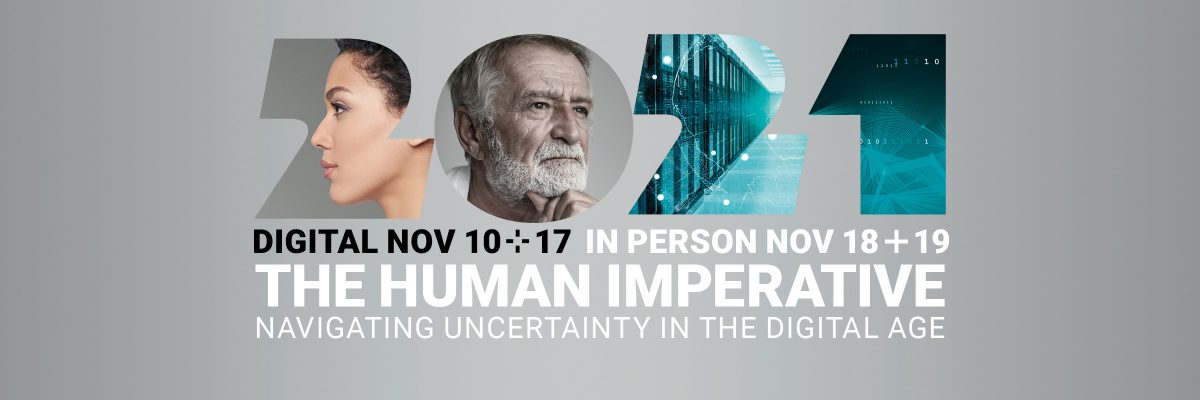
Has there ever been a more telling test of leadership than the past nine months? It is hard to remember a time when the values and purpose of an enterprise have been thrust more sharply into the spotlight.
In the wake of global lockdowns, enterprise leaders had to quickly protect employees and pivot business models to ensure a prosperous future in the face of myriad challenges. In many cases, it was a success. Work continued uninterrupted; often productivity increased.
But we are well beyond grappling with a new normal – this is a new beginning.
This presents us with a chance to use the technological strides we have made in recent decades to win in a new age of work. Here, some key behavioral and organizational shifts will be required. These fall into four key areas: enterprise agility, the supervisory model, collaboration and culture, and human talent.
Drucker Forum 2020
1. Enterprise agility Breaking work into manageable packages with a clear output – each designed to be accomplished by small teams – is a foundational principle of agile. In the future, it will be an essential approach.
Its success rides on a combination of factors. Well-organized knowledge workers will need to have an artisanal focus on the quality of the output and how it will be used. And these small, tight-knit teams must be empowered to do their best work and accountable for the results. Powerful collaboration tools will provide the environment for this work to happen.
2. The supervisory model
The pandemic has shown us technology’s effectiveness in measuring output, and this will lead to a paradigm shift in how people are managed. Significant supervision over teams will be eliminated. And in its place? A new cohort of “playing captains” will replace the traditional management function.
3. Collaboration and culture Of course, collaboration is key to the success of any organization. As such, enterprises will need to be able to construct mechanisms to replicate the ambient awareness inherent in physical work into the digital world. Leaders will have to encourage trust from those missing the lack of physical proximity – and the non-verbal cues and understanding it brings.
This might not be as big a challenge as it seems. Today’s digital-native young adults already effectively parse many non-verbal cues in their interactions on social media. So, it is likely that any concerns in this area reflect a lack of understanding rather than structural challenges in the nature of remote working.
4. Human talent
The pandemic has opened up the talent pool. The working world now has access to a global ‘talent cloud’, which provides equal opportunities and recognition of talent and human ingenuity, beyond boundaries defined by the brick and mortar offices As workplaces are getting reimagined, a position in Boston could now possibly be filled by an employee in Brussels. This, combined with the fungibility of talent, and the deep contextual knowledge will be the game changer in the future of work. It paves the way for organizations and employees to derive exponential value through maximizing opportunities and embracing risk.
As we move into agile working and new models of supervisory responsibility, underpinned by collaboration technology, many workers who have been unable to commit extended hours to the physical office will be allowed to participate more effectively.
As we stand at the door of this new work order, we are looking into an era of limitless opportunity for those that hone the right culture and skills.
About the Author:
Milind Lakkad is the Executive Vice President & CHRO, Tata Consultancy Services
This article is one in the “shape the debate” series relating to the fully digital 12th Global Peter Drucker Forum, under the theme “Leadership Everywhere” on October 28, 29 & 30, 2020.
#DruckerForum


As the year just ended, and after pretty much 12 month of recruting, training and managing a team remotely the main challenged was team building.
With the tool we have, it is not hard to manage your team remotely, but you need a good organization to avoid waisting your time.
We created a discord, every day, at the same time, we do a 30 min call with everyone, and discuss a point that we have decided should be discussed. Those calls, are also an opportunities I take to share our results with the team to keep them motivated, to show them that their work has purpose.
In short, my personnal believe is that manager should put more trust into their employee and than in normal time.